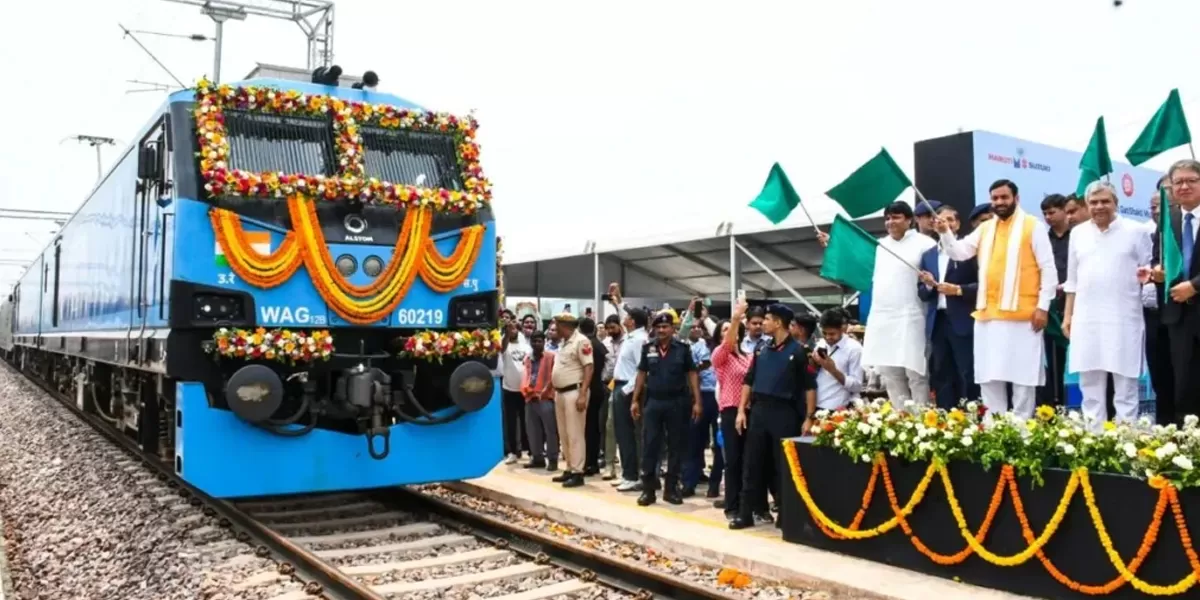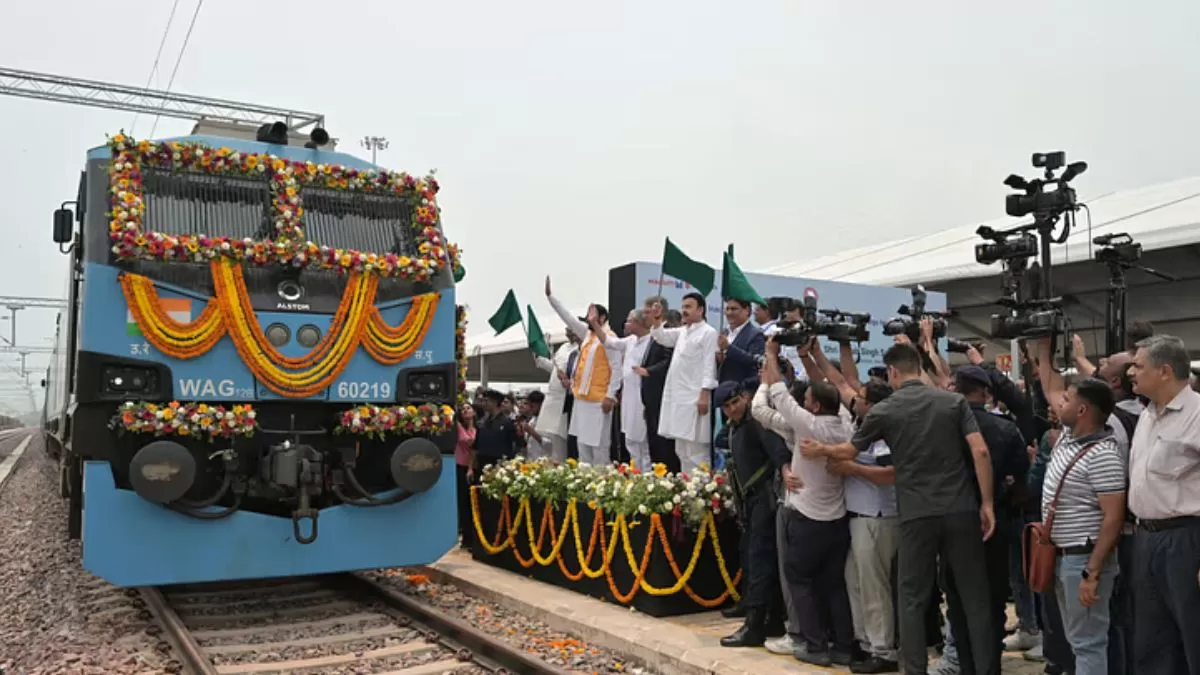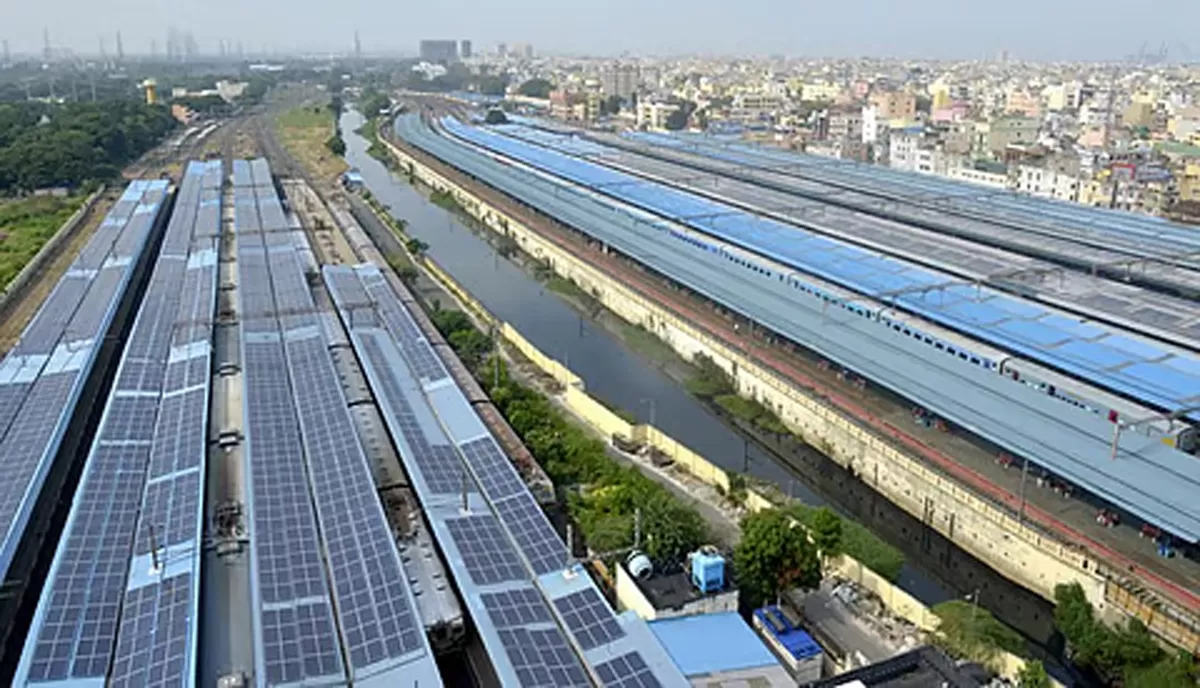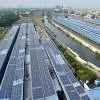
India’s Largest Auto Cargo Terminal Opens at Manesar
Railways Minister Ashwini Vaishnaw on Tuesday inaugurated India’s largest Gati Shakti Multi-Modal Cargo Terminal for automobiles at Maruti Suzuki India Ltd’s Manesar facility in Haryana. The new terminal is expected to significantly improve rail-based logistics efficiency for the automotive sector.The facility connects to Patli railway station via a 10-kilometre dedicated rail line, forming part of the 121.7-kilometre Haryana Orbital Rail Corridor being developed by the Haryana Rail Infrastructure Development Corporation (HRIDC). The link was built at a cost of Rs 8 billion, with HRIDC con..

Maruti Suzuki Opens Rs 4.52 Bn Rail Siding at Manesar
Maruti Suzuki India Ltd (MSIL) has inaugurated India’s largest in-plant railway siding for automobiles at its Manesar facility, with a total investment of Rs 4.52 billion. The move is part of the company’s long-term strategy to shift more vehicle dispatches to railways, targeting a 35 per cent share by the 2030–31 financial year.Since 2014–15, MSIL has dispatched 2.5 million vehicles via railway, and in March 2024, it became the first Indian automaker to set up an in-plant siding at its Gujarat facility. The new Manesar railway siding is aligned with the PM Gati Shakti National Master ..

KSEB Cleared to Procure 500 MW Power Under SHAKTI Scheme
The Kerala State Electricity Board (KSEB) has received regulatory clearance to initiate the bidding process for the procurement of 500 megawatts (MW) of round-the-clock (RTC) power, using coal allocated under the central government’s SHAKTI scheme. The Kerala State Electricity Regulatory Commission (KSERC) has approved several key deviations proposed by KSEB in the model bidding documents issued by the Union Power Ministry.These deviations pertain to the request for qualification, request for proposal, and power supply agreement, enabling KSEB to proceed with the tendering process for long-t..















